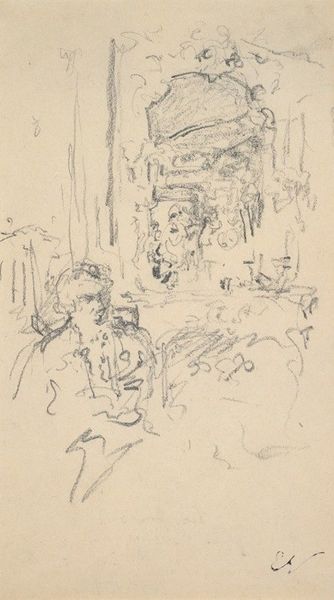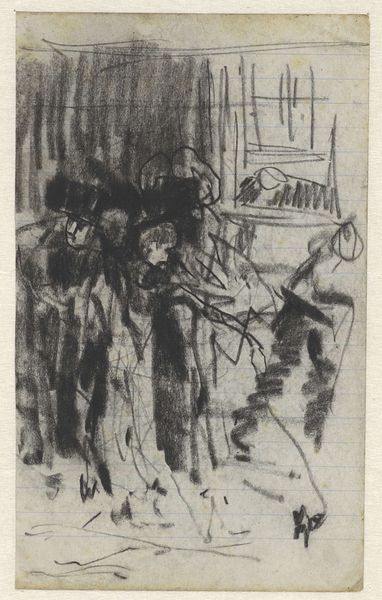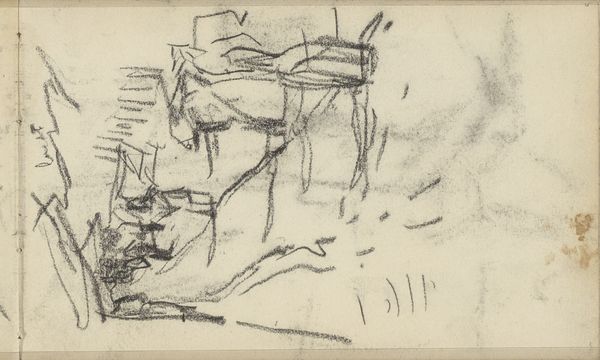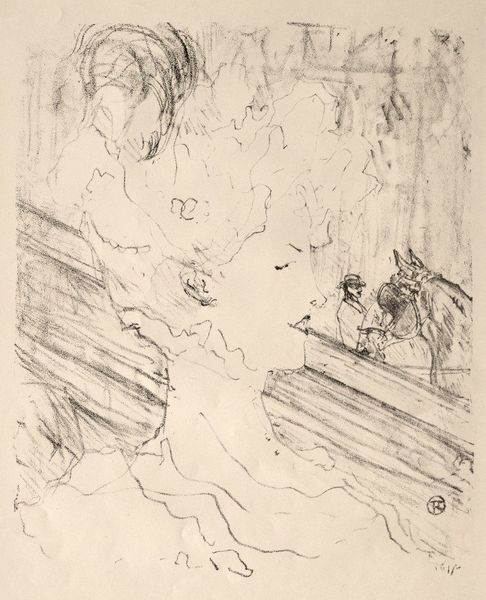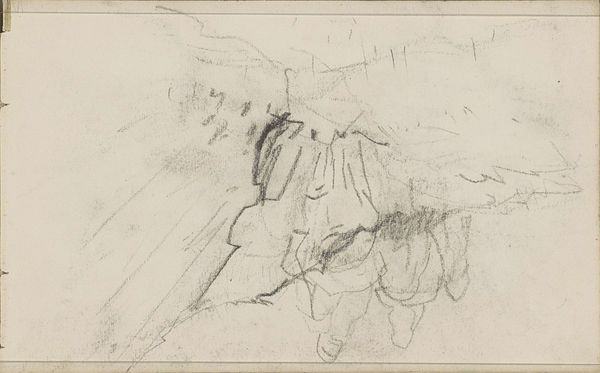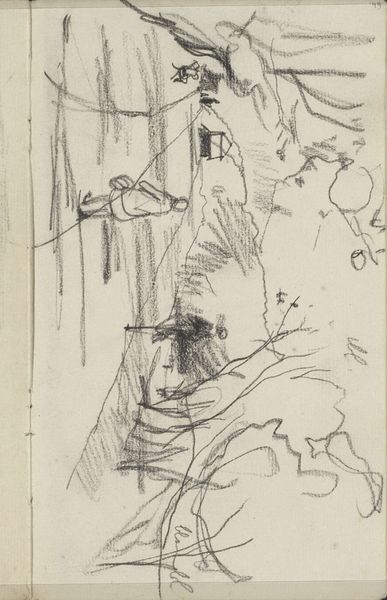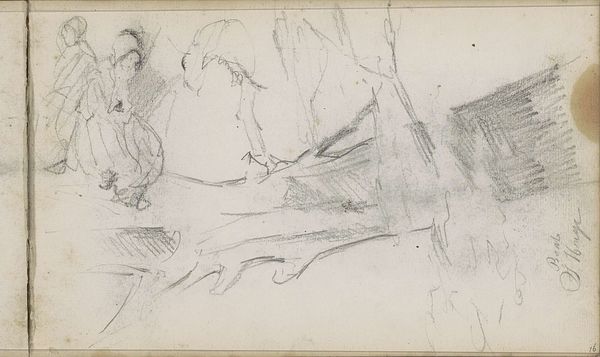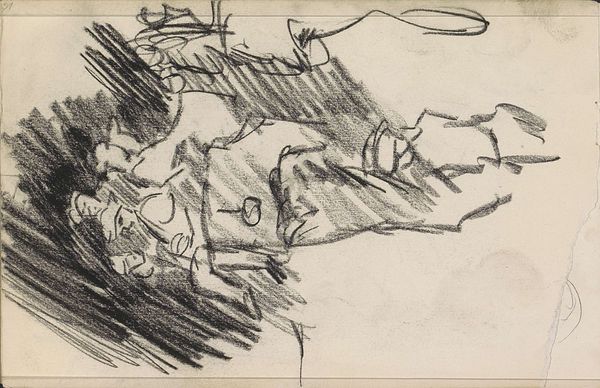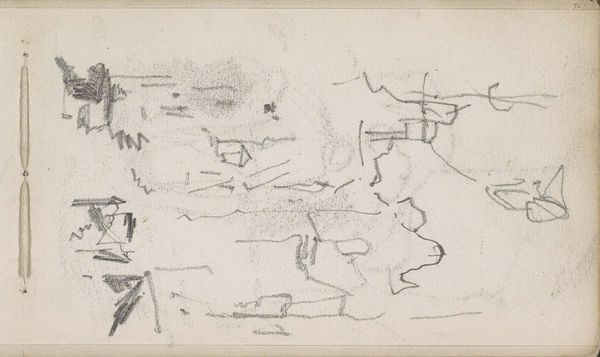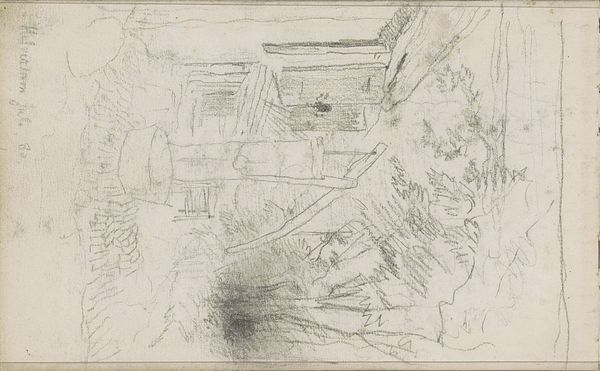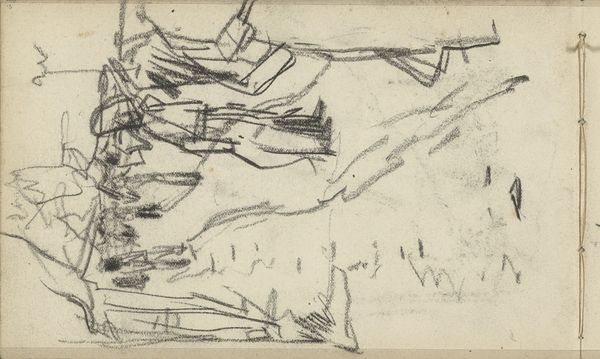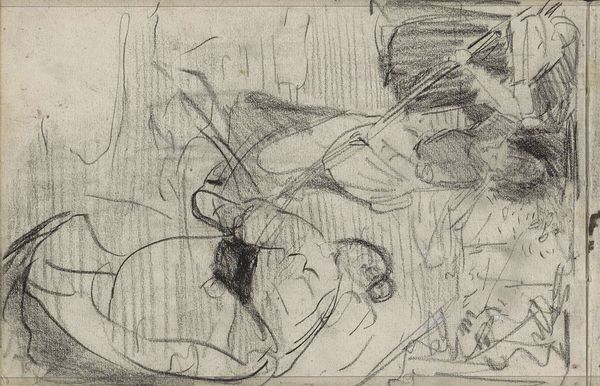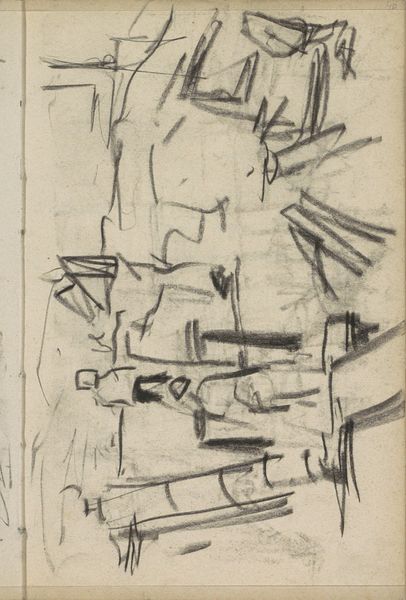
drawing, print, monoprint, ink
#
abstract-expressionism
#
drawing
# print
#
landscape
#
monoprint
#
ink
#
line
#
modernism
Dimensions: Image: 214 x 251 mm Sheet: 273 x 316 mm
Copyright: National Gallery of Art: CC0 1.0
Curator: We're looking at "Back yard," a monoprint drawing in ink by Pietro Lazzari, dating from around 1943. Editor: My immediate impression is that it feels unsettled. The stark ink lines create a chaotic composition, full of tension. Curator: Indeed. It's important to consider that Lazzari was an Italian American artist working during World War II. This period of global conflict significantly shaped artistic expression, influencing many artists toward abstraction and expressionism, which we see present in this landscape. Editor: I see that influence particularly in the dynamic lines. The way they intersect and overlap suggests movement and energy, almost like a visual representation of turbulent emotions. Note how his use of line eschews perspectival accuracy for emotive impact. Curator: The seemingly innocuous title, “Back yard”, sharply juxtaposes the work's modernist visual language, highlighting how turmoil reaches into even the most familiar of spaces, turning them upside down, transforming a simple domestic view into something evocative of wartime anxiety. Editor: It’s a very effective strategy. There is something almost cubist here, an appealing fractured quality in the forms. Lazzari builds the image through tonal variation alone—it’s clever, how much he manages to communicate, even while remaining almost monochromatic. Curator: And given the date, one wonders if it references internment. The domestic, fractured. Could that point to a visual representation of Italian American identity, one forcibly alienated and displaced? Editor: Interesting. Focusing on the pure form, the abstraction creates a dream-like space. It suggests something recognisable, but remains resistant to any definite categorization. That speaks, I think, to a deeper truth: one concerning the unreliability of perception. Curator: Perhaps. For me, it raises difficult questions around nationalism, immigration, and belonging. Editor: Regardless of the biographical and historical context, Lazzari delivers a compelling piece of modernist mark-making here. Curator: An example of abstraction's ability to grapple with broader human issues. Editor: Yes, its composition manages to engage both mind and eye, simultaneously.
Comments
No comments
Be the first to comment and join the conversation on the ultimate creative platform.

